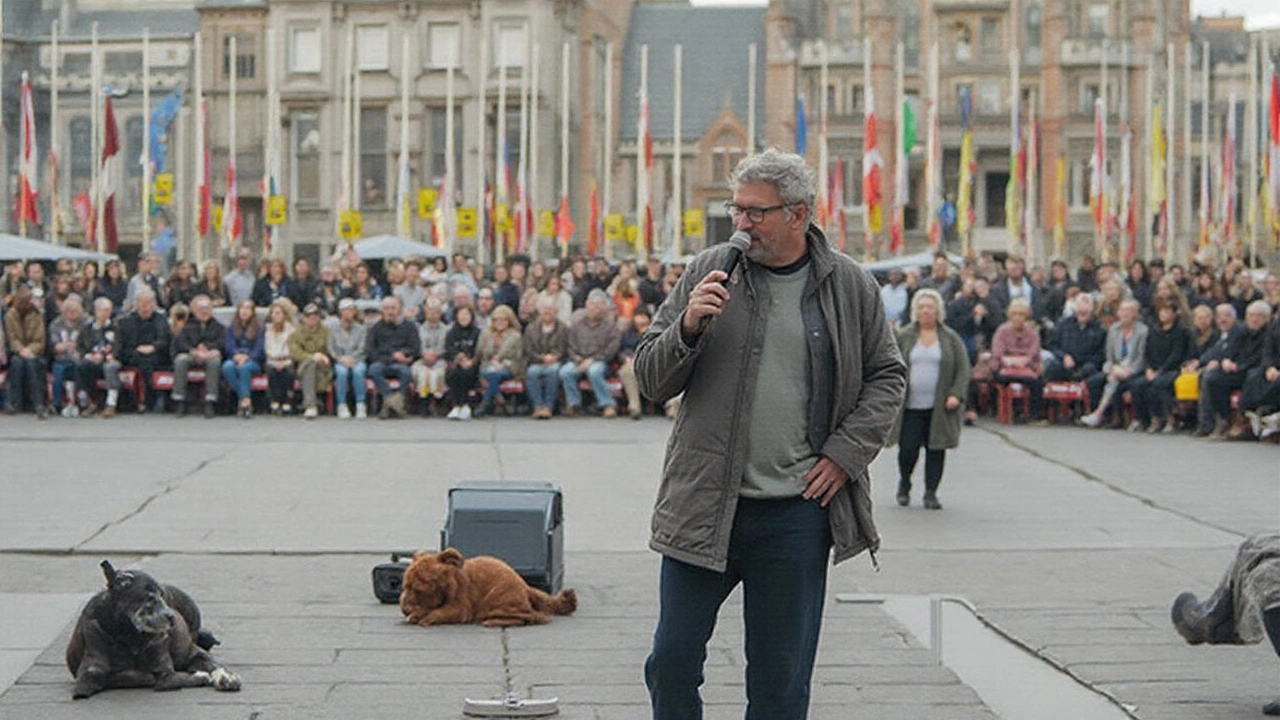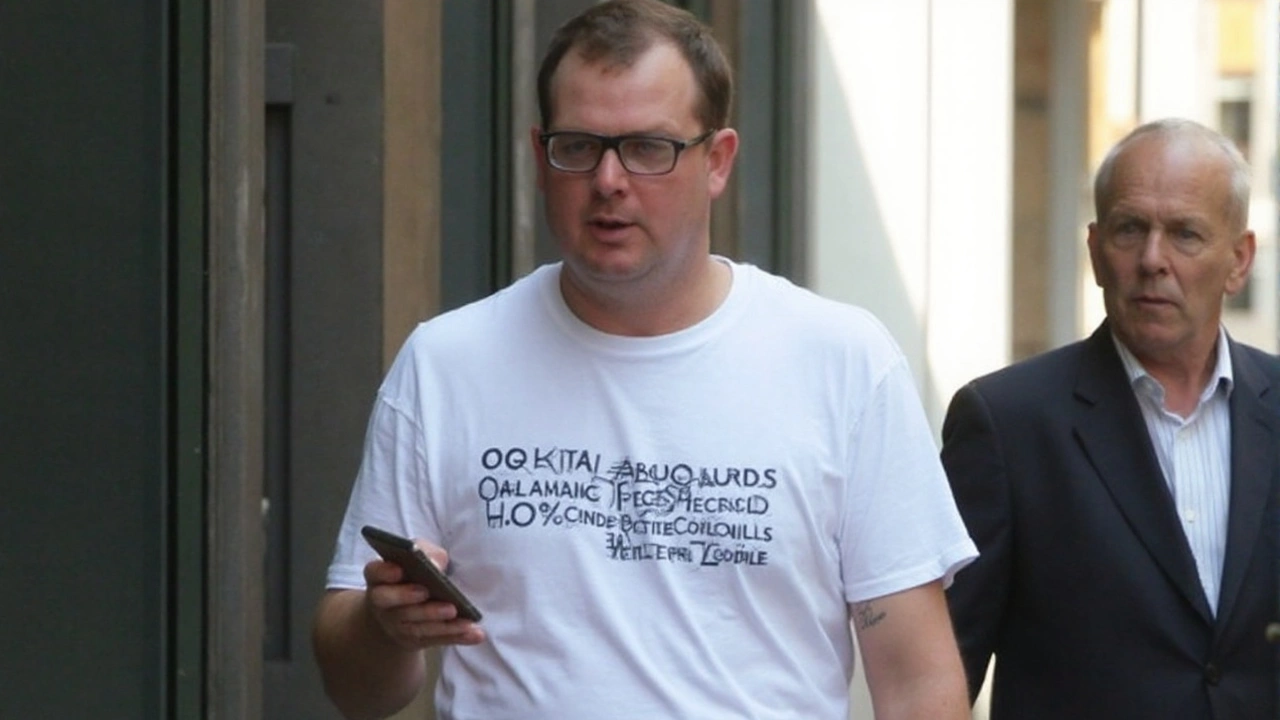
Two venues cancel, organisers promise a secret stage
Two Edinburgh Fringe venues pulled a planned one-off comedy night featuring Graham Linehan, the Father Ted and IT Crowd co-creator whose views on transgender issues have sparked repeated controversy. The first withdrawal came from Leith Arches, which said it would no longer host the event after complaints, and a second venue also stepped back soon after. With the clock ticking, organisers Comedy Unleashed told ticket holders they had secured a third location, but would keep it secret until doors opened.
That last-minute approach isn’t unusual at the Fringe when a show has security worries or faces a protest risk. Comedy Unleashed—known for hosting acts who say they struggle to get stage time elsewhere—told fans to watch their inboxes for updates rather than announce the address publicly. The strategy aimed to make sure the gig actually happened without disruption.
The cancellations landed fast. Leith Arches said in a social media post that it would not host events linked to performers accused of transphobia, and it pulled the booking after pushback from customers and staff. A second location then withdrew as well, according to organisers. That left Comedy Unleashed scrambling to relocate, with little time and a festival diary that was already jammed.
As rumours swirled, some social media posts claimed the show ended up outside the Scottish Parliament at Holyrood. We haven’t been able to verify that. What we do know is the organisers insisted the event would go ahead in a late-announced spot and asked attendees to keep details off public channels until showtime.
Linehan, once one of UK TV’s most bankable comedy writers, has become a lightning rod in the culture wars. He argues he is defending women’s rights and safeguarding, and says he is punished for speaking plainly. Critics say his posts and commentary demean trans people and fuel hostility. That split shapes where he can perform—and who will work with him.

Free speech, inclusivity, and the Fringe tightrope
This row isn’t just about one comic or one venue. It hits a pressure point for festivals: how to balance open platforms with audience safety and staff wellbeing. The Edinburgh Fringe is famously open-access—anyone can put on a show if they find a venue—but the Fringe Society does not control bookings, and each venue sets its own policies. That decentralised structure allows risk-taking and variety. It also means flashpoints can escalate quickly when a performer becomes the story.
For venues, the calculation is messy. Book the show and face backlash from customers and workers; cancel the show and face claims of censorship. Add in security costs and insurance worries, and a single hour of stage time can become a week-long headache. That’s especially true during the Fringe, when buildings are repurposed as pop-up theatres and run with small, stretched teams.
Comedy Unleashed has leaned into that friction, pitching itself as a club for comedians who say they’ve been de-platformed. The brand has hosted everyone from veteran contrarians to rising comics who like to test taboos. Supporters frame it as a needed counterweight to what they call a narrowing of acceptable jokes. Opponents accuse it of giving cover to acts whose material targets marginalised groups.
The speed of these cancellations also reflects Scotland’s own political backdrop. The Gender Recognition Reform Bill, passed by the Scottish Parliament and later blocked by the UK government, sharpened divisions around trans rights. New hate crime legislation has triggered rows over what counts as threatening or abusive behaviour. Even when a comedy show doesn’t directly fall under those laws, the wider debate shapes how people react to a booking.
Practically, last-minute venue switches test everything: ticketing, accessibility, disability access, stage tech, and crowd management. When organisers keep a location under wraps, it can protect the event from disruption. It can also leave some audience members—especially those who need certainty for travel or access—reluctant to attend. That’s a trade-off many shows now make when controversy threatens to shut them down.
Linehan’s pivot from sitcoms to culture-war flashpoints has changed his audience too. He draws crowds who see him as a free-speech bellwether, and he repels others who once followed his TV work but are put off by his activism. The result is a touring map where some rooms sell out while others refuse to host him at all. For promoters, that means planning for protests, press scrutiny, and the risk of a venue pulling the plug late.
There’s also a knock-on effect for other acts sharing the same buildings. Fringe venues are often multi-room spaces with back-to-back schedules. One contentious show can create a ripple: extra security on the door, staff briefings, and nervous neighbouring performers who worry about their audiences getting caught up in someone else’s row. Some venues decide it’s simpler to avoid the flashpoint altogether.
If there’s a lesson for the Fringe this year, it’s that open-access doesn’t mean consequence-free. Organisers can still book whom they want. Venues can still cancel. Audiences can still show up—or stay away. Between those choices sits a fragile trust that festivals are supposed to nurture: the idea that people with wildly different tastes can share the same city for a month without trying to shut one another down.
As for this specific show, the facts are plain: two venues canceled after complaints; the promoters hunted for a third, undisclosed space; ticket holders were promised updates at the last minute. Claims that the performance happened outside the Scottish Parliament remain unconfirmed at the time of writing.
Expect more of this. As long as comedians keep walking the line between provocation and harm, and as long as festivals prize openness while venues bear the practical risk, the stage will keep moving—sometimes literally, right up until the lights go up.